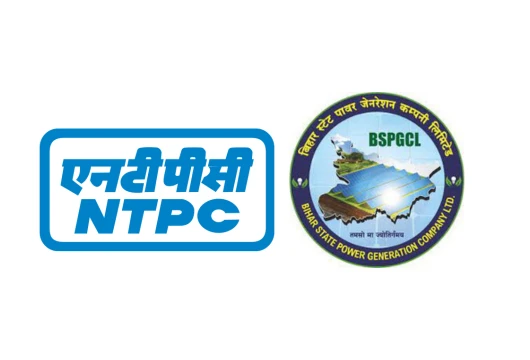MoU to Accelerate Renewable Energy and Battery Storage Expansion in India’s Heartland
In a powerful step towards strengthening India’s renewable energy mission, NTPC Green Energy Ltd (NGEL) has signed a Memorandum of Understanding (MoU) with the Bihar State Power Generation Company Limited (BSPGCL) to set up battery energy storage systems (BESS) and renewable energy projects in the state. This initiative supports India’s strategic push to reduce its carbon footprint and ensure reliable, round-the-clock power supply through clean energy solutions.
The agreement was inked on July 28, 2025, in New Delhi, marking a new chapter in Bihar’s energy transition journey. Present at the signing were Sarit Maheswari, CEO of NTPC Green Energy Ltd, and Abdesh Kumar Singh, Director Technical of BSPGCL. The event was also graced by Bihar’s Minister of Energy, Planning and Development, Bijendra Prasad Yadav, along with senior government officials and energy sector representatives.
Powering Bihar’s Green Future with Battery Storage
The strategic collaboration focuses on establishing renewable energy assets integrated with battery energy storage systems (BESS)—a crucial piece in solving the intermittency challenge of solar and wind power. With BESS technology, energy can be stored when renewable production peaks and released during high-demand hours, providing seamless, stable, and sustainable electricity.
This initiative also complements India’s national agenda to move towards ‘Net Zero’ carbon emissions by 2070 while ensuring energy security, economic growth, and sustainable development.
“Battery storage is the future of power reliability. With this collaboration, we are not just generating clean energy; we are creating a sustainable ecosystem that enables continuous power access, climate resilience, and local employment opportunities,” said a senior NTPC official.
A Broader Renewable Energy Strategy
This MoU follows close on the heels of NTPC Green Energy Ltd winning a major 1,000 MW solar PV project in an auction conducted by Uttar Pradesh Power Corporation Limited (UPPCL) last month. The company signed a Power Purchase Agreement (PPA) at a competitively discovered tariff of Rs 2.56 per kWh, reinforcing its leadership in cost-effective green energy solutions.
Adding further momentum, the Cabinet Committee on Economic Affairs recently enhanced NTPC’s financial powers for renewable energy expansion—from Rs 7,500 crore to Rs 20,000 crore. This policy support is expected to significantly accelerate green infrastructure development across India, with NGEL at the forefront of the mission.
60 GW Renewable Target by 2032: NTPC’s Bold Vision
As India’s largest power utility, NTPC Ltd aims to add 60 GW of renewable energy capacity by 2032, a move aligned with India’s global climate commitments under the Paris Agreement. The partnership with Bihar signals NGEL’s commitment to decentralised, inclusive, and forward-looking renewable energy expansion across the nation.
By embracing battery storage and integrating it with solar and wind projects, NTPC is ensuring resilience in energy supply while reducing dependence on fossil fuels. The shift will not only bolster energy security but also create an environment conducive to green investments and technological innovation.
Local Benefits: Jobs, Entrepreneurship, and Economic Revival
Beyond environmental impact, the NTPC-BSPGCL agreement brings substantial socio-economic benefits to Bihar. According to an official statement, the projects will generate direct and indirect employment during both construction and operations phases. This includes:
- Construction workers and skilled technicians
- Operations & Maintenance professionals
- Supply chain partners, including local MSMEs
- Entrepreneurs in allied sectors like solar components, battery systems, and logistics
These projects are expected to stimulate local enterprise and enhance entrepreneurship opportunities, especially among youth and rural communities, acting as a catalyst for regional economic development.
India’s Energy Transition: Milestones and Aspirations
India has already achieved 50% of its installed electricity capacity from non-fossil sources—a full five years ahead of schedule as per its Nationally Determined Contributions (NDCs). Now, the country is setting its sights on a 500 GW non-fossil energy capacity by 2030.
Strategic partnerships like the one between NGEL and BSPGCL are instrumental in meeting these ambitious targets. By combining federal and state-level cooperation, India is not only enhancing energy access but also becoming a global model for inclusive clean energy transition.
Battery Storage: The Future of Power Stability
As renewable generation grows, battery energy storage systems (BESS) will become indispensable. They balance load demands, store excess energy for nighttime use, and support grid stability—making them key enablers for India’s green grid.
BESS projects in Bihar are expected to:
- Enhance electricity reliability during peak hours
- Support grid modernisation
- Lower carbon emissions by reducing the need for diesel and coal backup power
- Encourage innovation and scale in storage technologies
“Battery storage not only enables more renewables on the grid, but it also makes the grid smarter and more responsive. It’s where sustainability meets resilience,” stated a senior energy expert.
Bihar: Emerging as a Clean Energy Hub
This partnership positions Bihar as an emerging player in India’s clean energy landscape. The state has abundant potential for solar power, and with the addition of battery storage, it can now ensure 24×7 green power to urban and rural consumers alike.
With proactive governance, policy support, and world-class implementation by NTPC Green Energy Ltd, Bihar is set to become a model for other states aiming to blend renewable expansion with economic and environmental goals.
Building a Bright, Green, and Reliable Future
The NTPC-BSPGCL MoU is more than a business deal—it’s a blueprint for climate-smart growth, energy equity, and technology-led transformation. With battery storage as the anchor, this project underscores India’s readiness to lead the global clean energy revolution from the grassroots.
As India accelerates toward its Net Zero goal by 2070, the collaboration in Bihar reflects the power of partnership, the promise of innovation, and the unwavering commitment to a sustainable and inclusive future.
For more in-depth analysis and inspiring climate news, click here.

